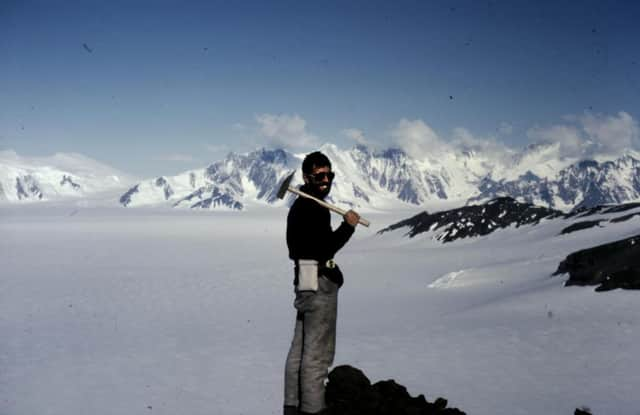Scots geologist on the map after part of Antarctic named after him


Dr Malcolm Hole, of Aberdeen University, said it was a ‘real honour’ to have part of Rothschild Island, a black rugged place dotted with the Desko Mountains, take his name.
Hole Peninsula has now been mapped given the geologist’s work in the region, with Antarctic place names honouring those who have made an exceptional contribution to furthering the understanding, protection and management of the polar region.
Advertisement
Hide AdAdvertisement
Hide AdPlace names are given to those whose achievements are considered in line with those of early explorers.
Dr Hole, who in 1985 became only the second person to visit Rothschild Island, now has his name added to an Antarctic feature which had previously only been known by its coordinates.
He said: “To me it is recognition of a scientific contribution but also for exploration of Antarctica,” he added.
“Last year marked the 200th anniversary of the discovery of the continent yet vast areas remain unexplored and poorly understood.
“It is a real honour to have my name printed on maps of the polar south alongside famous figures from past as well as those currently supporting research in the territory.”
His research proved Hole Peninsula was of volcanological significance and he has since published numerous papers about the geology of the region and remains its most recent visitor.
The naming of places in the Antarctic and sub-Antarctic goes back to 1775 when Capt. James Cook RN, discovered South Georgia and the South Sandwich Island.
The UK Committee for Antarctic Place Names provides advice on place-naming in the British Antarctic Territory, using agreed international principles and procedures. Features are identified where naming is necessary for scientific, logistical or management purposes.
Advertisement
Hide AdAdvertisement
Hide AdThe naming of ‘Hole Peninsula’ is another accolade for Dr Hole’s Antarctic research as he has also received the Laws Prize and the Laws Medal for his work.
‘Hole Peninsula’ is now included in the British Antarctic Territory gazetteer.
Rothschild Island was discovered in 1905 by a French polar expedition and was named after the Édouard Alphonse James de Rothschild, a prominent figure in the French banking family.
The island has never been inhabited and is protected from industrial development, although cruises more frequently pass through the region.
